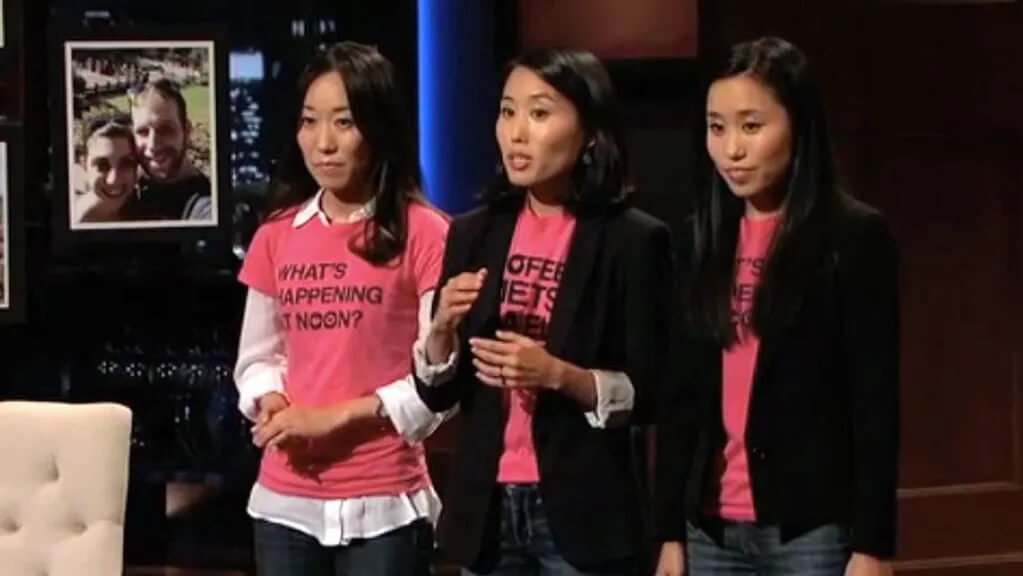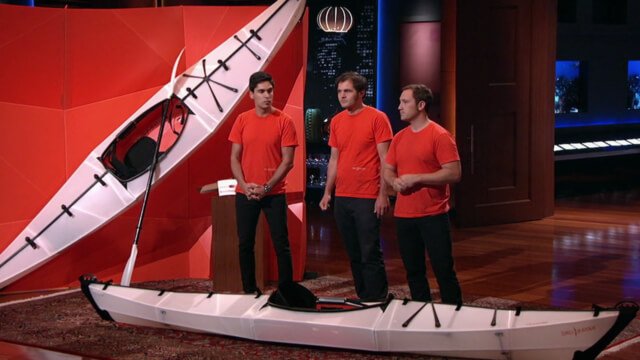You’ve heard the same Shark Tank story a hundred times. A founder walks in, cracks a joke, pitches their big idea, and walks out with a fat check—right? Wrong. The Coffee Meets Bagel pitch was something else. No magic handshake. No flashy patent. Just three founders (the Kang sisters) who knew exactly what they were worth—and had the nerves to prove it in front of the sharpest investors in America.
You want to know: did saying ‘no’ on TV tank their business, or did it send them into the stratosphere? Let’s get into it.
Contents
ToggleCoffee Meets Bagel – Quick Snapshot
If you’ve ever swiped through Tinder until your thumb went numb, Coffee Meets Bagel probably popped up on your radar. This dating app took a different route: less swiping, more substance. The twist? It focused on quality connections—one curated match a day—served up using your Facebook friend network. Not a single robot in sight.
But here’s the kicker. This wasn’t some wild overnight story. Coffee Meets Bagel started with three sisters—Arum Kang, Dawoon Kang, and Soo Kang—who walked away from stable, cushy jobs to join the app wars. Their pitch on Shark Tank? Pure guts, smart risk, and a little bit of game theory. Fast-forward, and they’re now headline material every time someone talks Shark Tank’s biggest missed shots.
Founders Behind Coffee Meets Bagel
Let’s talk Kang sisters. Immigrated to the U.S. as teens. Corporate resumes loaded with Goldman Sachs, J.P. Morgan—a classic why risk it all? story. But they had the itch. They saw a dating market obsessed with looks and split-second slides, not lasting relationships.
I’ve seen dozens of founders hold onto jobs or perks, clinging to what’s safe. These three? They quit high-paying jobs, banked on their connections, and jumped—together. That’s real founder commitment. When someone risks everything, you listen differently. They weren’t chasing a viral moment. They wanted to build a brand that lasted.

The Shark Tank Pitch: What Went Down?
Season six, episode thirteen. The sisters step onto the Shark Tank stage, sharp, professional, and confident. Their ask? $500,000 for 5% equity. That put Coffee Meets Bagel’s value at $10 million—no small ask, especially for a dating app burning cash.
They laid it out straight: every day, users get one high-quality match (bagel) plucked from their social circles via Facebook. You can ‘like’ or ‘pass’—but only have 24 hours. No endless swiping, just intentional dating.
The Sharks drilled hard. They wanted to know: why not chase scale and volume? The founders stuck to their guns. Slow growth, high retention, and solving the matching problem—one actual relationship at a time. No gimmicks, no shortcuts.
You could feel the skepticism. Questions about monetization. Jokes about the friends of friends mechanism. Mark Cuban, Lori Greiner, Kevin O’Leary, Barbara Corcoran—they all circled, picking apart the numbers. But the energy never dropped. The Kang sisters rolled with every punch.
Net Worth and Funding: Is Coffee Meets Bagel a Winner?
Here’s where things get real. Back on the Tank, Coffee Meets Bagel had lost $1 million on $1 million in sales. And each founder was pulling a $100,000 salary—a detail that set off alarms with the Sharks. But the sisters didn’t flinch. They bet on future value, not short-term profit.
Fast forward a few years, and the numbers speak louder than any TV drama. Coffee Meets Bagel has raised over $23 million in funding after Shark Tank. Do the math. That original $10 million valuation? Keep climbing. VCs lined up, even when the Sharks passed.
So, is Coffee Meets Bagel a winner? If you’re counting steady user growth, a premium brand, and heavy outside investment, this isn’t just another blip. It’s a legit long-play. The sisters played the long game, and it’s paying off.
Shark Reactions and the Wildest Offer Ever
This is where the Coffee Meets Bagel Shark Tank story hits SharkWorth legend status. Usually, the Sharks poke holes, maybe make a counter-offer, and then someone snaps up a bargain. Here? Mark Cuban dropped a bombshell: $30 million on the table to buy the whole company. Right there, the biggest one-shot offer in Tank history.
Let’s be clear. That’s an insane offer, especially for a company with limited revenue at the time. But the catch? You walk away—no legacy, no second chances, just a giant payout and a quick fade from the game you started.
Lots of founders would’ve taken that exit. I’ve seen it before and after—easy money turns heads. The Kang sisters didn’t blink. They turned down the deal, choosing vision and independence over a quick payday. Most Sharks were spooked by the business model and salary structure, but these founders played for keeps.
No deal. No regrets. Turns out, you don’t have to say yes to make it big.
Core Product: How Coffee Meets Bagel Works
Here’s where Coffee Meets Bagel stood out from every swipe-right clone on the app store.
First, there’s no endless buffet of faces. Instead, you get one hand-picked match every day at noon. Why? Because too much choice leads to decision fatigue—and worse matches. This was deliberate.
Second, Coffee Meets Bagel uses friends-of-friends to build trust and make intros feel safer. That’s different from Tinder or Bumble, where anyone can sneak in.
Third, privacy sits front and center. If two users like each other, conversations happen over a private SMS channel that self-destructs in a week. No lingering awkwardness or data leaks. It’s all about slow, intentional connections—less thrill, more real-life potential.
The app put women in control, made every match feel special, and ditched the FOMO-driven chaos you see everywhere else.
Where Is Coffee Meets Bagel Now?
Here’s the real test: did no deal help or hurt them? Turned out, it was the best move they ever made.
Coffee Meets Bagel kept growing—quietly, not flashy. They pulled in more capital (over $23 million), added new features, and built a loyal community looking for real relationships. No growth hack gimmicks. Just product and user experience.
By 2025, they’re still out there: running, innovating, and holding a strong spot in the dating app game. Sure, they don’t make as much noise as a few viral players. But they own their niche, kept their standards, and never sold out their brand.
That slow and steady pitch? It paid off.

Lessons for Entrepreneurs
Here’s where it gets personal. You watch Shark Tank because you want the playbook. What do the winners actually do? Here’s what I see:
1. Know your worth, even when it’s unpopular. Saying no to $30M on national TV takes guts, but it also shows a founder with vision. The Kang sisters knew what they wanted—control, legacy, long-term upside.
2. Don’t chase the crowd. Dating apps are a minefield. Everyone’s after scale, fast. Coffee Meets Bagel chose ‘quality over quantity’ and stuck to it. Sometimes standing alone is the only way to win.
3. Ignore the noise, focus on product. Critics joked. Sharks passed. But the Kang sisters kept shipping features that mattered to their users. That’s how you build brand loyalty—consistently, not in viral spurts.
4. Be real about salary and burn rate. The Sharks hated those $100K salaries. But guess what? Founders need to eat, too. They balanced risk with real-life needs, and the business survived. Lesson: don’t underpay yourself into burnout.
5. Say ‘no’ to the wrong deal. Not every Shark is a ride-or-die partner. Sometimes walking away is the best move—especially if you believe in your roadmap. Their no turned into millions down the line.
If you’re grinding on your own startup, those five ideas are gold. I’ve seen founders try to please everyone. The best ones, like the Kang sisters, play the long game.
Conclusion: Real Results After Shark Tank
So, was Coffee Meets Bagel just a Shark Tank story, or did they build something lasting? If you ask SharkWorth, this is one of the best no-deal wins in the show’s history.
They didn’t get a Shark. They didn’t take Mark Cuban’s wild money. They did it their way—and it worked. Now? Over $23M in funding, a brand people trust, and a business that’s still growing in 2025.
For founders watching at home: sometimes, the biggest moves aren’t the ones you make on camera. They’re the ones you defend when everyone else says you’re wrong. Coffee Meets Bagel is proof you can bet on yourself—and win.
If you want to build something meaningful, Coffee Meets Bagel should be on your list of Shark Tank case studies. Real grit, smart business, and zero regrets.
FAQs
1. Is Coffee Meets Bagel still in business after Shark Tank?
Yes, Coffee Meets Bagel is still active and thriving, with millions raised and a dedicated user base.
2. Did the Kang sisters regret turning down Mark Cuban’s offer?
No public regrets. If anything, that no helped them keep control and drive long-term growth on their terms.
3. How much is Coffee Meets Bagel worth now?
The company has raised over $23 million post-Tank. Current valuation likely exceeds that original $10 million pitch.
4. What made Coffee Meets Bagel different from Tinder or Bumble?
One match daily, friends-of-friends intros, and a focus on privacy. Less swiping. More substance.
5. Did Coffee Meets Bagel ever take outside investment after the show?
Absolutely. They pulled in millions in follow-up rounds even after all the Sharks passed.
6. How many users does Coffee Meets Bagel have today?
They’re tight-lipped on exact numbers, but the app has counted millions of downloads and a loyal active base.
7. Why did the Sharks worry about the founders’ salaries?
$100K founder salaries sounded high for a company burning cash. Sharks like tight margins—but founders must eat.
8. Has the app’s business model changed since Shark Tank?
Core model stands: daily curated matches, privacy-focused, women-first. Adjustments? Yes. But the main playbook survived.
For more deep dives and net worth breakdowns on Shark Tank’s wildest pitches, check out SharkWorth. The real stories—hype-free, just the grind and the numbers—every entrepreneur needs










